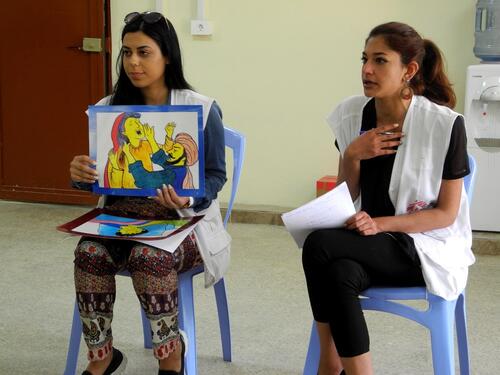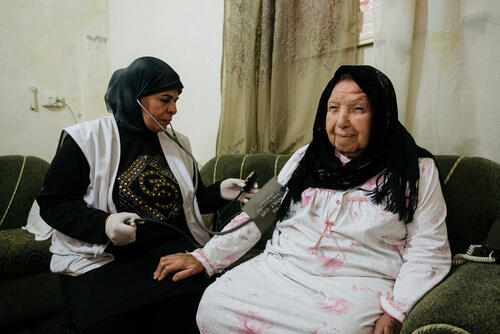
291,500
291,5
11,100
11,1
5,600
5,6

670
67
As neighbouring conflicts continue to spiral, more than a quarter of Lebanon’s population is now made up of refugees, including over a million from Syria. This huge influx of people has put an immense strain on the country’s services, such as education, health, housing, water and electricity.
In 2017, MSF was present across Lebanon, and continued to provide Syrian refugees and Lebanese communities with free high-quality medical assistance, including primary healthcare, treatment for acute and chronic diseases, sexual and reproductive health services, mental health support and health promotion activities. MSF expanded its services to offer secondary and tertiary care with the opening of a paediatric unit in a government hospital in 2017. MSF also ran three mother and child health centres across the country.
Teams carried out more than 291,000 outpatient consultations and some 11,100 mental health consultations, and assisted almost 5,600 births.
South Beirut
Since September 2013, MSF has been managing a primary healthcare centre and a mother and child health centre in Shatila refugee camp, where vulnerable Palestinians, Syrians, Palestinians from Syria and Lebanese, in addition to other communities of various nationalities, are living in deplorable conditions.
In Burj al-Barajneh refugee camp, MSF runs a health centre providing sexual and reproductive health services, mental health support and health promotion activities. MSF also operates a home-based care programme for patients with chronic diseases who suffer from mobility problems.

Bekaa Valley
In the Bekaa Valley, where the majority of Syrian refugees have settled, MSF provides primary healthcare services through four clinics in Hermel, Aarsal, Baalbek and Majdal Anjar. In addition, teams run two mother and child health centres in Aarsal and Majdal Anjar.
MSF started the rehabilitation of a hospital in Bar Elias in March, and handed over its chronic disease patients in Bar Elias to other health structures in October.
Also in March, MSF opened a paediatric intensive care unit in a government hospital in Zahle, providing secondary and tertiary healthcare, general paediatrics and paediatric intensive care, as well as elective surgery.
North Lebanon
MSF runs three primary healthcare centres in Tripoli and Akkar governorates and a dedicated mental health programme in three centres, targeting vulnerable Syrians and Lebanese.
In October 2017, MSF implemented a water and sanitation programme in informal tented settlements in a number of villages in Akkar that are not covered by other humanitarian organisations.
South Lebanon
In 2017, MSF’s programme in Ein-el-Hilweh Palestinian refugee camp in Saida focused on the most acute unmet needs of the residents. MSF helped medical personnel in the camp to build up their emergency preparedness and response plan so they could stabilise any injured people caught up in violence. The team also launched a new home-based care programme for patients who suffer from mobility problems.


















